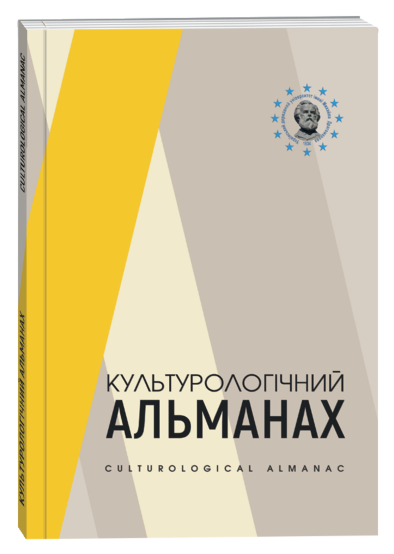HISTORICAL EXPERIENCE OF THE FORMATION OF THE SYSTEM OF TRAINING SPECIALISTS OF THE MILITARY AND HUMANITARIAN PROFILE OF THE ARMED FORCES OF UKRAINE
DOI:
https://doi.org/10.31392/cult.alm.2022.3.10Keywords:
educational process, Armed Forces of Ukraine, military-humanitarian profile, moral and psychological supportAbstract
The article examines the formation and development of the organizational aspects of the system of training specialists in the military-humanitarian profile of the Armed Forces of Ukraine on the example of Hetman Petro Sahaidachnyi National Army Academy. The study covers the period from Ukraine’s acceptance of independence to the beginning of the Anti-Terrorist Operation, which took place in the East of our country. The main requirements for graduate cadets who studied during the specified period at a military institution of higher education in the areas of “Radio Engineering”, “Culture” and “Educational and socio-psychological work in units of the Ground Forces” are considered. As well as the conditions that influenced the development of these requirements and the educational process (introduction of new disciplines). It was determined that the researched period is conditionally divided into three stages: 1) 1991–2004, in which the basic regulatory and legal documents were adopted, the preparation of the military-humanitarian profile was carried out at the expense of retraining courses for officers with an education of the Soviet period, after the reorganization of educational institutions the main attention was paid to national-patriotic education (study of the Ukrainian language and history), the requirements for a graduate consisted of “knowledge, skills and abilities”; 2) 2004–2009, during which the development of the regulatory framework continued, retraining courses were completed, disciplines of moral and psychological support were introduced into the educational process, requirements for graduates were transformed into “competencies”; 3) 2009–2014, in which the significant influence of the international association can be seen, there is an exchange of experience with the direct participation of cadets and teachers in international training, the main attention of educational training is given to the acquisition of psychological and diagnostic competencies, the issue of leadership is introduced into the training. As a result of the analysis of the researched material, it can be concluded that geopolitical changes, foreign experience and the desire to create an independent army had a significant impact on the training of militaryhumanitarian specialists for the Armed Forces of Ukraine.
References
Галузевий стандарт вищої освіти. Освітньо-кваліфікаційна характеристика бакалавра напряму підготовки «Радіотехніка». Київ, 2004. 26 с.
Кисіль В.В. (2011). Проблеми діяльності органів з виховної та соціально-психологічної (виховної) роботи в Збройних Силах України. Вісник Національного університету оборони України. № 4(23). С. 51–57.
Освітньо-кваліфікаційна характеристика на випускника Військового інституту при Державному університеті «Львівська політехніка». Напрям підготовки «Радіотехніка». Львів, 1999. 19 с.
Про заходи щодо реформування гуманітарної сфери Збройних Сил України : Розпорядження Президента України від 25 жовтня 2003 р. № 338/2003-рп / Президент України. URL: https://zakon.rada.gov.ua/laws/show/338/2003-%D1%80%D0%BF#Text (дата звернення: 12.11.2022).
Про Концепцію гуманітарного і соціального розвитку у Збройних Силах України : Указ Президента України від 12 січня 2004 р. № 28/2004 / Президент України. URL: https://zakon.rada.gov.ua/laws/show/28/2004#Text (дата звернення: 12.11.2022).
Стандарт вищої освіти (2013). Освітньо-кваліфікаційна характеристика бакалавра за напрямом підготовки «Військове управління (за видами Збройних Сил України: Сухопутні війська)». Київ. 42 с.
Стандарт вищої освіти (2009). Освітньо-професійна програма бакалавра напряму підготовки «Культура». Київ. 21 с.








